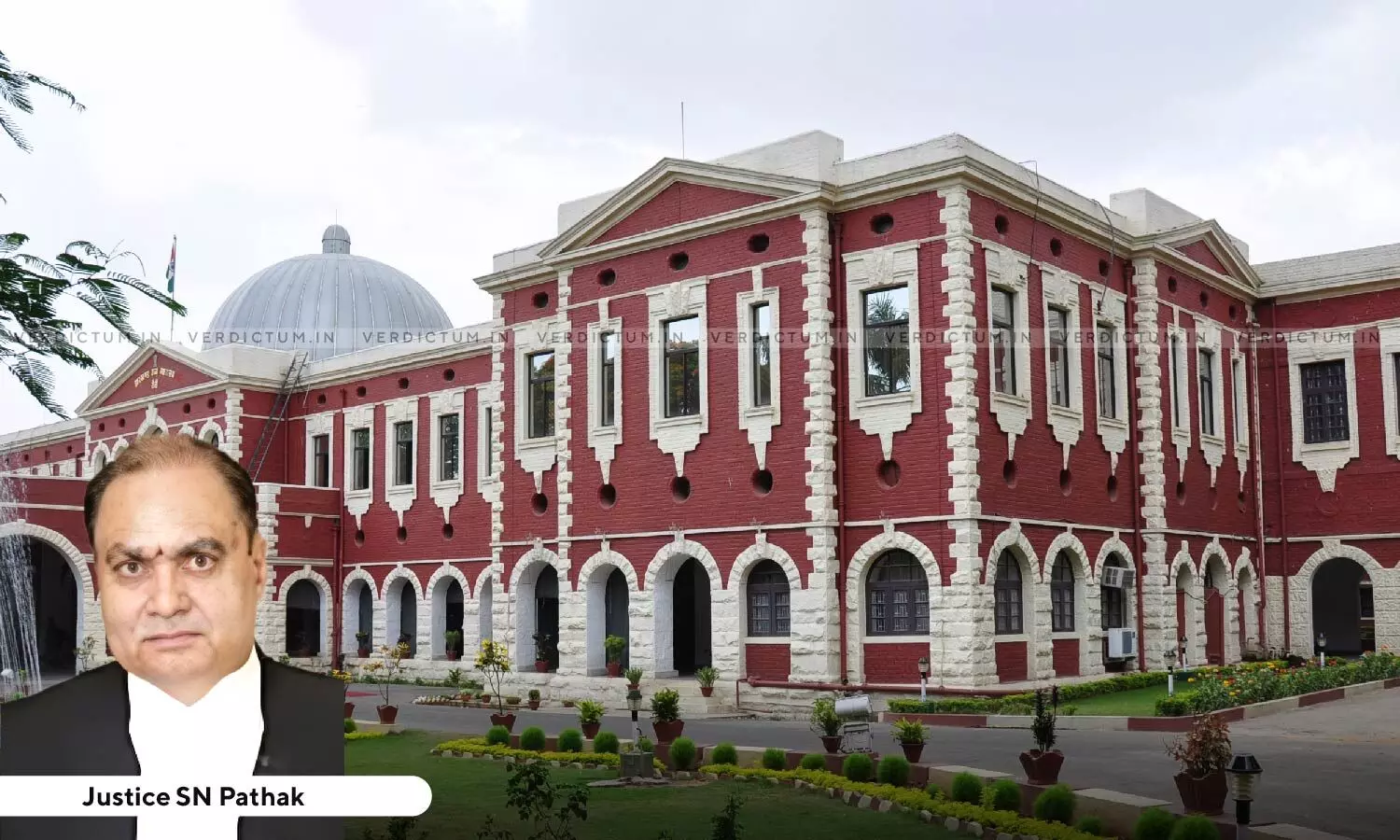
Even In A Matter Of Departmental Proceeding, Some Sort Of Evidence Is Required To Be Proved Against The Delinquent: Jharkhand HC
 |
|he Jharakhand High Court held that even in a matter of departmental proceeding, some sort of evidence is required to be proved against the delinquent and proceeding has to be conducted in accordance with rules whereby departmental proceeding is governed.
The Court was dealing with writ petitions filed to claim pensionery benefits and challenge the petitioner's termination from service.
The single-bench of Justice S.N. Pathak observed, "It is true that in a matter of departmental proceeding under the service law, the interference by a Writ Court under Article 226 of the Constitution is very limited. But it is equally true that even in a matter of departmental proceeding, some sort of evidence is required to be proved against the delinquent and proceeding has to be conducted in accordance with rules whereby departmental proceeding is governed."
The petitioner was represented by Advocate Manoj Tandon, Advocate Neha Bhardwaj while the respondent State was represented by Nehru Mahto, Assistant Counsel to Government Pleader.
The petitioner had filed two writ petitions, one for payment of pensionery benefits and other for quashing of the order whereby the petitioner was terminated from service. The case against him was that while he was posted as Block Education Extension Officer, he withdrew a sum of Rs. 4,36,000/- and the amount could not be distributed in the schools and while handing over the charge to his successor, he did not hand over the aforesaid details of amount. It was further alleged that a complaint was made against the petitioner with respect to 5 bags of rice, as he distributed only 35 bags of rice instead of 40 bags of rice. The third allegation against him was that there was a criminal case going on against him. Owing to all this, a departmental inquiry was initiated against him and he was eventually terminated from service.
He preferred departmental appeal which was dismissed. Thereafter, a writ petition was preferred and in the meantime, he retired.
Counsel for the petitioner while assailing the termination order submitted that the very initiation of the departmental proceeding was bad in the eyes of law for the simple reason that the same was proceeded under Rules 49 and 55 of the Civil Services (Classification, Control & Appeal) Rules, 1930 which stood repealed by coming into existence of Jharkhand Government Servant (Classification,Control & Appeal), 2016. He submitted that the very initiation of departmental proceeding, therefore, was non-application of mind by the authority. Referring to the enquiry report, he submitted that the enquiry officer had held the charges proved against the petitioner without examining even a single witness to support the charge. It was thus submitted that mere production of document may not be sufficient to prove charge against the petitioner unless the contents thereof is proved by a witness. He relied on Supreme Court judgements in Hardwari Lal Vs. State of U.P. & Ors., to contend that without examining the complainant, the charge could not be proved and on other judgement in Roop Singh Negi Vs. Punjab National Bank & Ors., to fortify his argument that without examining the witnesses, the charge could not be proved and unless the charge is proved in accordance with law, no punishment can be inflicted upon the delinquent.
On the other hand, Counsel for the respondent State submitted that the departmental proceeding was initiated against the petitioner and the enquiry officer held the charges to be proved. The petitioner was given ample opportunity to submit second show cause reply and thereafter the disciplinary authority has punished the petitioner. His appeal against the same also stands dismissed.
The Court noted that removal from service is under the heading of Major Penalty as stipulated under Rule 17 and Rule 17 (3) (ii) (a) is a mandatory provision which prescribes that where it is proposed to hold an enquiry against the Government servant, the disciplinary authority shall draw up the substance of imputations and the statement of imputation of misconduct or misbehaviour in support of each article of charge shall contain a list of such witnesses by whom the article of charge are proposed to be sustained.
It so observed, "In the present case, from perusal of the memo of charge, which is Annexure-1 to the writ petition, it does not appear that this mandatory provision has been followed, as no list of witness is given thereunder. This Rules came into effect on 15.4.2016 and the charge was framed against the petitioner on 20.6.2016. The mandatory provisions, therefore, were violated in initiation of the proceeding against the petitioner. Moreover, though the aforesaid Rule 2016 was invoked on the date of initiation of departmental proceeding on 20.6.2016, the respondents initiated the proceeding mentioning Rules 49 and 55 of the Civil Services (Classification, Control & Appeal) Rules, 1930 which stood repealed by the aforesaid Rules, 2016, in view of Rule 32 thereof, which is the repealed and saving clause. This shows complete non-application of mind by the disciplinary authority while initiating the departmental proceeding."
The Court thus concluded that in the present case, mere documents were produced and no witness was examined and the charges could not said to be proved as mere production of document would not be sufficient to prove the charge, unless the witness proves the contents thereof.
The Court accepted the submissions made by Counsel for the petitioner and decided in his favour.
The writ petitions were accordingly allowed.
Cause Title: Jagdish Paswan vs State of Jharkhand
Appearances:
Petitioner- Advocate Manoj Tandon, Advocate Neha Bhardwaj
Respondent- Nehru Mahto, Assistant Counsel to Government Pleader.
Click here to read/ download the order: